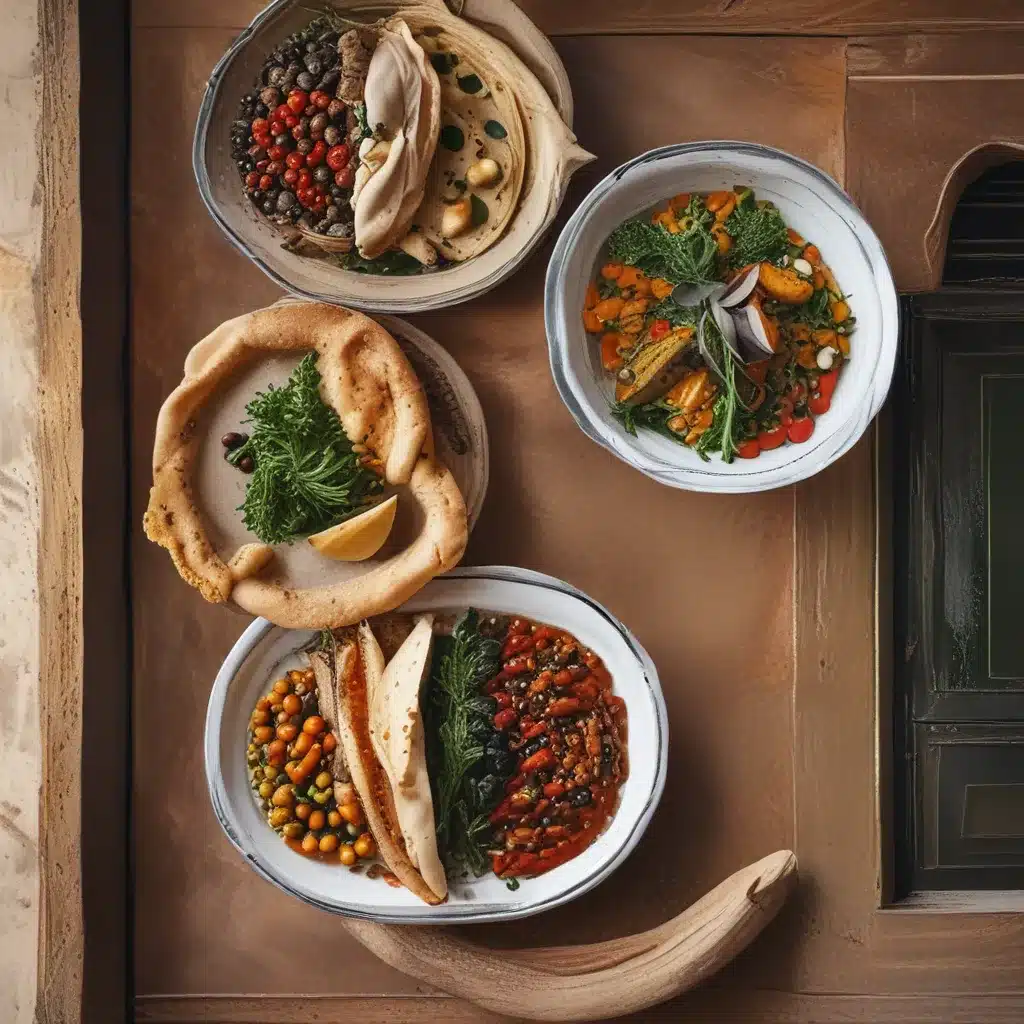
Embracing the Sights, Sounds, and Flavors of a Changing Culinary Landscape
As I sit here, sipping on a warm cup of mint tea and gazing out at the bustling streets of Casablanca, I can’t help but feel a deep sense of wonder and appreciation for the ever-evolving food scene in this captivating country. Morocco, once known for its traditional and time-honored culinary heritage, is now a vibrant melting pot of flavors, innovations, and cultural exchange – a true testament to the resilience and adaptability of its people.
Rediscovering the Roots of Moroccan Cuisine
It all began with my serendipitous journey to Morocco, a trip that would forever change the course of my life. Back in 2008, when I first set foot in this enchanting kingdom, I was immediately captivated by the intoxicating blend of sights, sounds, and aromas that permeated the air. As I wandered through the bustling souks, sipping on fragrant mint tea and savoring the delectable street food offerings, I found myself falling head over heels in love with the rich tapestry of Moroccan culture and gastronomy.
My initial encounter with Morocco was a true coup de foudre – a lightning strike of inspiration and discovery that ignited a deep fascination with the country’s culinary heritage. I marveled at the skilled artisans meticulously crafting traditional delicacies, the vibrant spice markets showcasing an array of aromatic ingredients, and the age-old recipes passed down through generations. It was a sensory overload, but one that left an indelible mark on my soul.
The Emergence of a New Gastronomic Movement
Fast forward to the present day, and the Moroccan food scene has undergone a remarkable transformation. While the country’s time-honored traditions remain the foundation, a new wave of chefs, entrepreneurs, and culinary innovators are pushing the boundaries, blending the old with the new to create a truly captivating dining experience.
One such visionary is Mourad Lahlou, the mastermind behind the acclaimed restaurant Mourad in San Francisco. Lahlou’s approach to Moroccan cuisine is a testament to the power of evolution and adaptation. By respecting the roots of his culinary heritage while infusing it with modern techniques and global influences, he has created a culinary symphony that pays homage to the past while embracing the future.
Similarly, food writer Alec Lobrano has chronicled the emergence of a new Moroccan food scene, one that celebrates the country’s vibrant and diverse culinary landscape. From the bustling food halls of Marrakech to the innovative street food vendors of Casablanca, Lobrano has shed light on the talented chefs and food artisans who are redefining the way the world perceives Moroccan cuisine.
Embracing Tradition and Innovation
As I delve deeper into the evolving Moroccan food scene, I’m struck by the harmonious balance between tradition and innovation. The country’s rich culinary heritage, rooted in centuries-old recipes and techniques, serves as the foundation for a new generation of culinary artists who are pushing the boundaries of what’s possible.
Take, for instance, the humble tagine – a slow-cooked stew that has long been a staple of Moroccan cuisine. While the basic principles of tagine-making remain the same, chefs are now experimenting with innovative flavor combinations, incorporating global ingredients, and even reimagining the presentation to create truly breathtaking dishes.
Similarly, the art of couscous, another beloved Moroccan staple, is being elevated to new heights. Artisanal couscous producers are embracing heirloom grains and sustainable farming practices, while chefs are exploring novel ways to showcase the versatility of this humble ingredient.
A Culinary Melting Pot
But the evolution of Moroccan cuisine is not just about individual innovation; it’s also about the cross-pollination of cultures and the embrace of global influences. Morocco’s strategic location at the intersection of Africa, Europe, and the Middle East has made it a natural hub for cultural exchange, and this is reflected in the country’s dynamic food scene.
Moroccan chefs are now drawing inspiration from the flavors of the Mediterranean, the spices of the East, and the culinary traditions of the West, seamlessly blending these elements to create dishes that are both familiar and surprising. The result is a culinary melting pot that celebrates the country’s rich heritage while embracing the diversity of the modern world.
Sustainability and Social Responsibility
But the evolution of Moroccan cuisine is not just about flavor and innovation; it’s also about embracing social responsibility and sustainability. Across the country, food entrepreneurs and chefs are pioneering initiatives that prioritize ethical sourcing, fair labor practices, and environmental stewardship.
From the El Bahia restaurant in New York City, which sources its ingredients directly from Moroccan cooperatives and small-scale producers, to the organic farms and artisanal producers that are revitalizing traditional food systems, there is a growing movement towards a more conscious and sustainable food culture in Morocco.
A Culinary Journey of Discovery
As I sit here, sipping my mint tea and reflecting on the remarkable transformation of the Moroccan food scene, I’m filled with a sense of excitement and anticipation. This is a country that is constantly evolving, pushing the boundaries of what’s possible and redefining the way we think about cuisine.
Whether you’re a seasoned foodie or a curious traveler, I invite you to embark on a culinary journey through the vibrant and ever-changing landscape of Moroccan gastronomy. From the bustling streets of Casablanca to the serene medinas of Fez, there is a world of flavors, stories, and cultural exchange waiting to be discovered.
So, let’s go – yallah, let’s dive in and explore the evolving food scene in modern Morocco, one delicious bite at a time.


